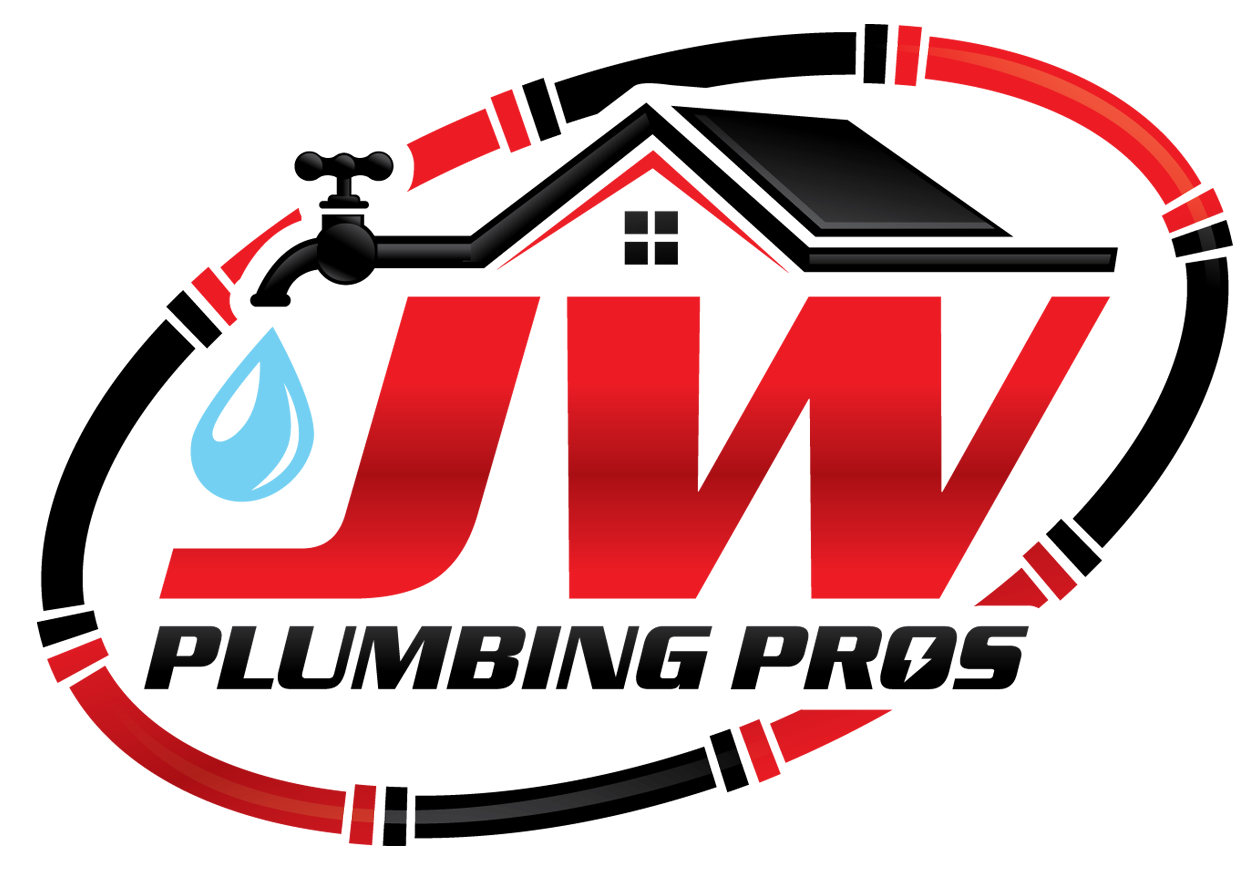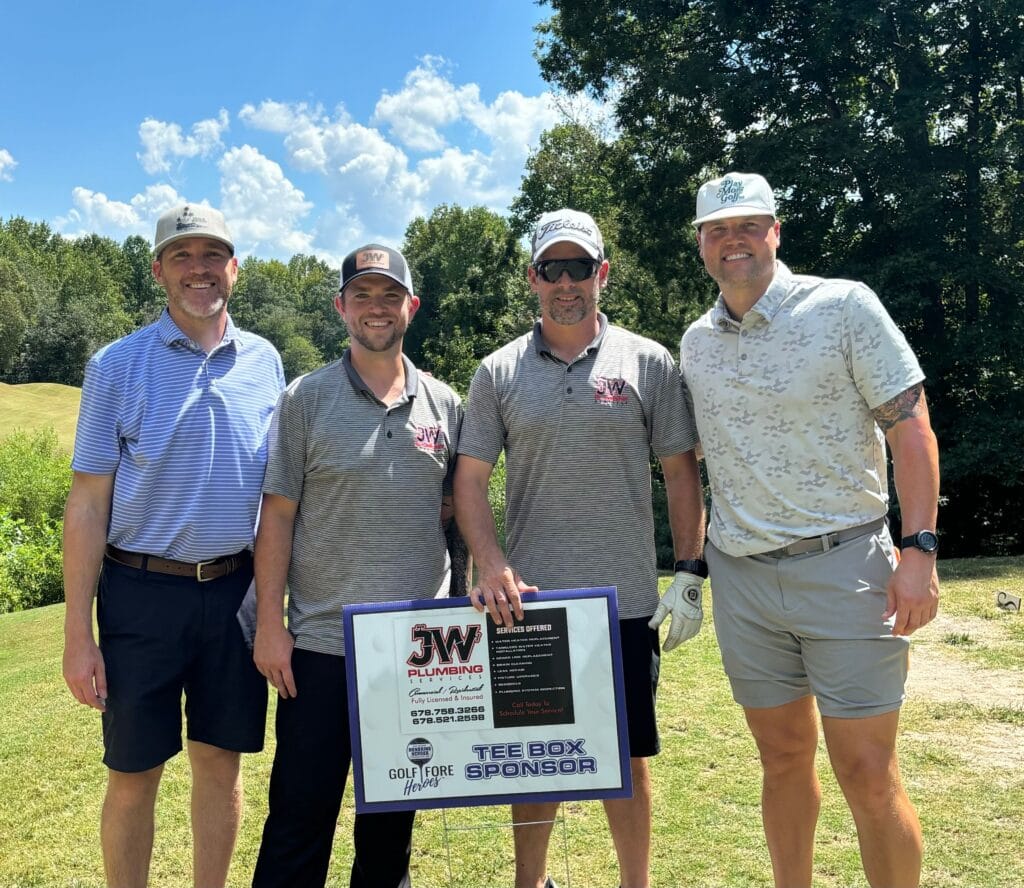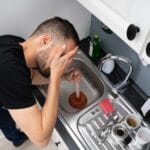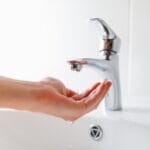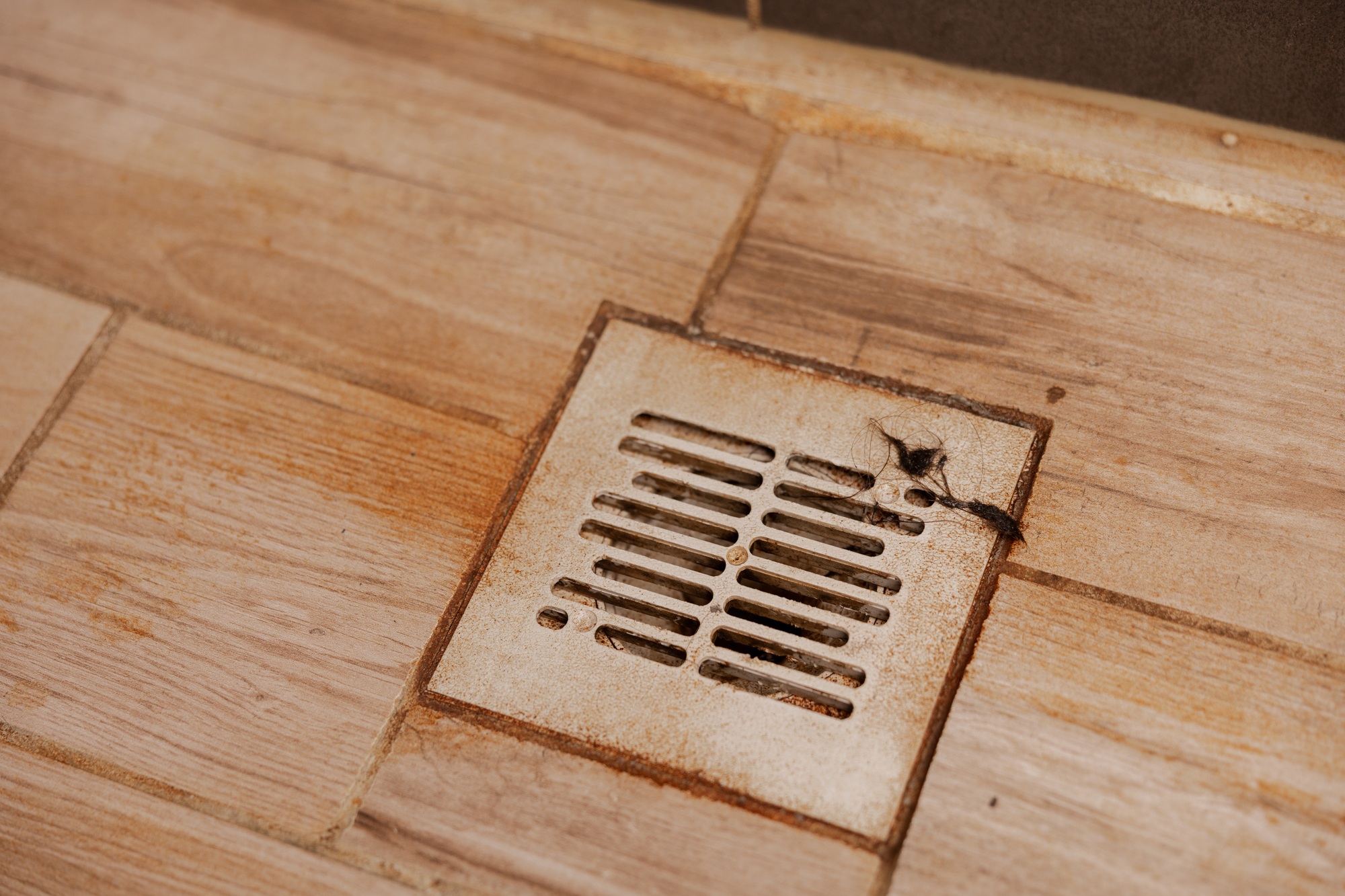Few household issues are more annoying than a clogged drain. Whether it’s a slow-draining sink, a backed-up kitchen drain, or a foul odor wafting up from the pipes, clogged drains disrupt your day and often signal bigger plumbing problems on the horizon.
Even worse, if left unchecked, a simple blockage can turn into a costly repair job involving clogged pipes or damaged plumbing.
So, if you’re wondering how to keep drains from clogging, you’re in the right place. This guide is packed with practical clog prevention tips, from understanding the most common causes of blockages to adopting effective drain cleaning routines and preventative tools like drain screens.
Prevent Drains from Clogging
How to Prevent Drain Clogs: Causes
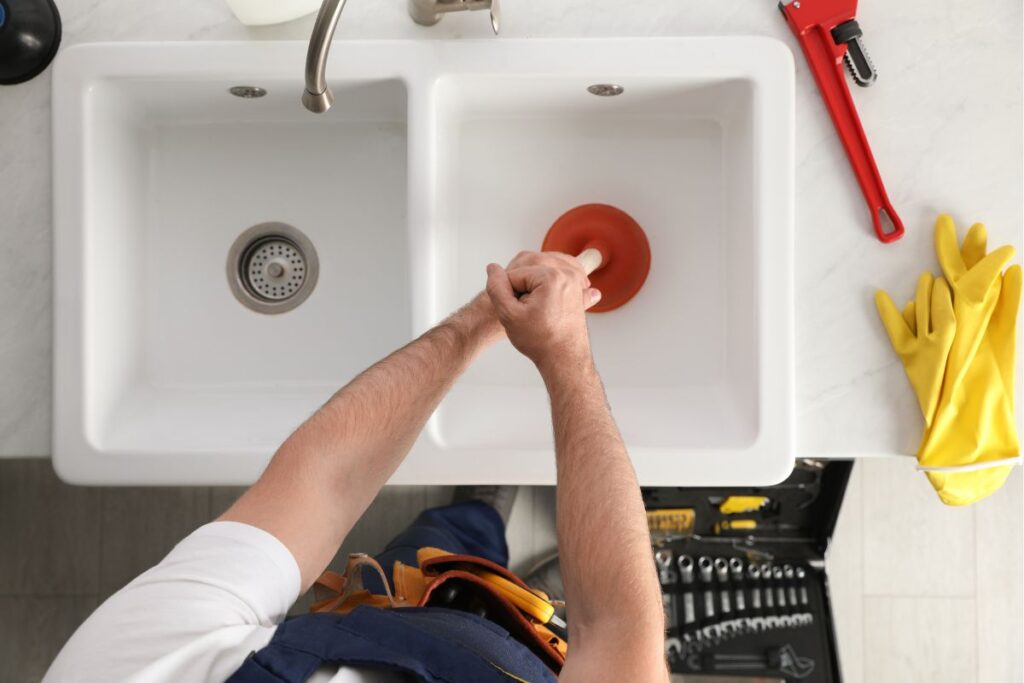
To truly prevent clogged drains, it helps to understand what causes them in the first place. Most clogs don’t happen overnight—they build up slowly over time, creating sticky, slimy blockages inside your drain pipes. From the shower drain to the kitchen sink, each area of your home is vulnerable in different ways.
Here’s a closer look at the most common culprits behind household clogs:
Hair and Soap Scum
Shower drains and tub drains are prime locations for hair-related clogs. Hair strands easily bind with soap residue, especially from bar soaps, forming dense, web-like blockages that cling to pipe walls. Over time, this mixture hardens and becomes more difficult to remove, often leading to a regular drain clogs.
To prevent drain buildups like these, install mesh screens over bathroom drains and clean them regularly. Swapping bar soap for liquid alternatives can also help reduce soap scum accumulation.
Grease and Cooking Oil
Grease might go down the drain as a liquid, but it quickly solidifies inside your plumbing, trapping bits of food and other debris. These greasy buildups are one of the top causes of kitchen clogs and are notoriously tough to break apart.
To keep your kitchen drain clean, always let grease cool and toss it in the trash instead of pouring it down the sink. Wipe pans with a paper towel before washing, and consider using strainers to catch any lingering food particles.
Food Waste
Certain foods—like pasta, rice, potato peels, and coffee grounds—are notorious for clogging kitchen sinks. Starches swell with water, and fibrous scraps like celery can wrap around components in the disposal, causing blockages that slowly grow.
Even with a garbage disposal, it’s wise to scrape plates into the trash or compost bin. Strainers are your best defense against food slipping down the drain and contributing to clogs.
Non-Flushable Items
Toilets are only meant to handle human waste and toilet paper. Unfortunately, items like “flushable” wipes, cotton balls, dental floss, and hygiene products don’t break down in water and can easily cause a recurring drain clog, especially in older plumbing systems.
Make it a household rule: if it’s not toilet paper, it goes in the trash.
Mineral Buildup
If your home has hard water, you’re more likely to experience mineral deposits forming inside your pipes. Over time, these calcium and magnesium accumulations restrict water flow, narrow the pipe’s diameter, and make it easier for debris to collect.
Installing a water softener can help reduce mineral buildup and help avoid clogged or narrowed pipes.
Understanding these common causes is the first—and perhaps most important—step in learning how to prevent your drains from clogging before they become a major headache. Next, we’ll look at easy maintenance habits and smart disposal practices to help you stay ahead of trouble.
How to Keep Drains from Clogging: Clog Prevention Tips
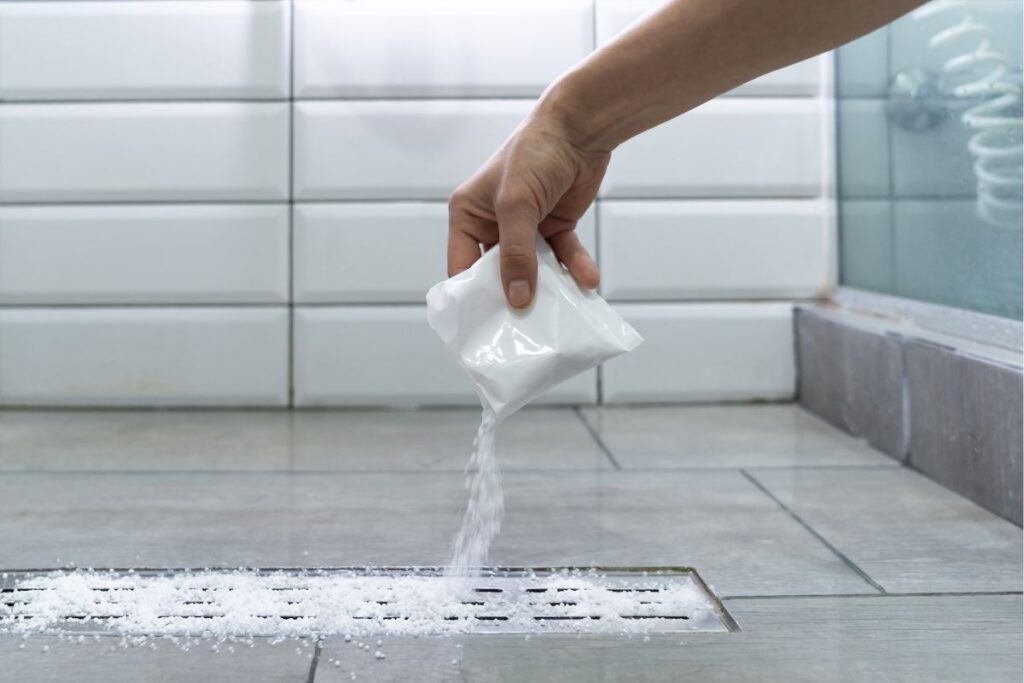
Once you know what causes clogs, the next step is all about prevention. The good news? A few simple routines and smarter disposal habits can go a long way in keeping your drain pipes clear. These practical tips will help you keep your drains running smoothly and avoid plumbing issues before they start.
Drain Clog Prevention: Clean Drains Regularly
Routine drain cleaning is one of the easiest ways to prevent drain buildups. Here are a few tried-and-true methods:
• Baking Soda & Vinegar
Once a month, pour ½ cup of baking soda followed by ½ cup of vinegar down your drain. Let the mixture fizz and sit for about 30 minutes before flushing it with hot water. This combo helps break down gunk and deodorize drains naturally.
• Hot Water Flush
Once a week, pour boiling water down your kitchen drain or shower drain to melt away soap residue and grease that may be clinging to the walls.
• Enzyme-Based Drain Cleaners
Skip the harsh chemicals and opt for enzyme or bacteria-based drain cleaners instead. They’re safer for your pipes and the environment, and they work well for dissolving organic material like hair and food.
Watch What Goes Down the Drain
Your sink and tub aren’t trash cans. Be mindful of what you rinse or flush into these fixtures:
• In the Kitchen:
Never pour grease or oil down the sink—it cools and hardens in your pipes. Instead, wipe it up with paper towels and toss it in the garbage. Also avoid dumping fibrous veggies, eggshells, or pasta down the disposal. These common culprits are responsible for many kitchen clogs.
• In the Bathroom:
Use drain screens to catch hair and soap particles in your shower drain and tub drain. Clean the screens often to keep water flowing freely.
• In the Toilet:
Only flush toilet paper. Even items labeled “flushable” (like wipes or cat litter) can lead to major clogs over time.
Install Drain Screens
One of the easiest upgrades you can make? Install drain screens in your sinks, tubs, and showers. These simple mesh filters act as a first line of defense, catching hair, food bits, and debris before they can enter your plumbing. They’re inexpensive, easy to clean, and make a huge difference in keeping your drains clog-free.
Keep an Eye on Outdoor Drains
Don’t forget about the drains outside your home. Leaves, dirt, and even tree roots can wreak havoc on exterior drainage systems. Make it a seasonal habit to clear out your yard drains and downspouts. If you have large trees near your sewer line, consider a yearly inspection to catch root intrusions early.
Be Gentle on Your Pipes
Chemical-based drain cleaners might promise fast results, but they can corrode your pipes with repeated use. Stick to eco-friendly cleaning products and methods or call in a pro if you’re dealing with a persistent drain clog that just won’t go away.
Adopting these habits can dramatically reduce your chances of a clog forming and help you keep your home’s plumbing system running smoothly. In the next section, we’ll cover when it’s time to stop DIY-ing and bring in a professional plumber.
When to Call a Professional
Even with the best prevention strategies, sometimes clogged drains happen. While many minor blockages can be handled with DIY techniques like hot water flushes or natural cleaners, there are times when the issue goes beyond what a plunger or baking soda can fix.
Here’s how to know when it’s time to bring professionals for plumbing repairs:
Stubborn Drain Clog
If the same sink or tub keeps clogging, it’s a sign something more serious is going on. You could be dealing with grease buildup, a foreign object lodged in the pipe, or even partial blockages in your drain pipes that require professional tools to remove completely.
Multiple Slow or Backed-Up Drains
When more than one fixture in your home is draining slowly—like the kitchen drain, shower drain, and toilet—it might not be a local clog. This can indicate a more serious issue in your main sewer line or clogged pipes deep within your system. At that point, only a professional inspection will get to the root of the problem.
Persistent Bad Odors
Unpleasant smells coming from your sink or shower often signal hidden gunk, mold, or even a developing clogged drain that’s out of reach. If the odor doesn’t go away after cleaning, it may be caused by decaying matter trapped in the pipes—or worse, a sewer gas leak.
Gurgling Sounds or Water Backups
If you hear gurgling when using the sink or toilet, or see water backing up into the tub when you run the washing machine, your system may be struggling to drain properly. These are red flags for air trapped in the plumbing, a clear sign of a more advanced blockage that’s best left to the pros.
Water Damage or Leaks
Sometimes, a clog puts enough pressure on the system to cause pipes to crack or joints to loosen. If you notice water pooling under cabinets, in the basement, or near floor drains, it’s time to call for immediate help before structural damage occurs.
Keep Your Drains Flowing and Your Home Stress-Free
Preventing a clog doesn’t have to be complicated. With just a few mindful habits—like using drain screens, avoiding grease buildup, and staying on top of drain cleaning—you can keep your home’s plumbing system in great shape. Whether it’s the kitchen drain, shower drain, or even your outdoor pipes, regular maintenance goes a long way in helping you stop clogged drains before they start.
But if you do find yourself dealing with a persistent drain clog or recurring issues that home remedies just can’t fix, don’t stress—help is just a call away.
At JW Plumbing Pros, we specialize in clearing clogged drains quickly and effectively. Our friendly, licensed plumbers serve homeowners across Cartersville, Dallas, Acworth, Kennesaw, Woodstock, Hiram, Marietta, and Holly Springs. Whether it’s a kitchen sink that won’t budge or a sewer line that needs attention, we have the tools and expertise to get your water flowing again—fast.
Ready to say goodbye to drain problems? Contact JW Plumbing Pros today for prompt, reliable service and expert care you can count on.
